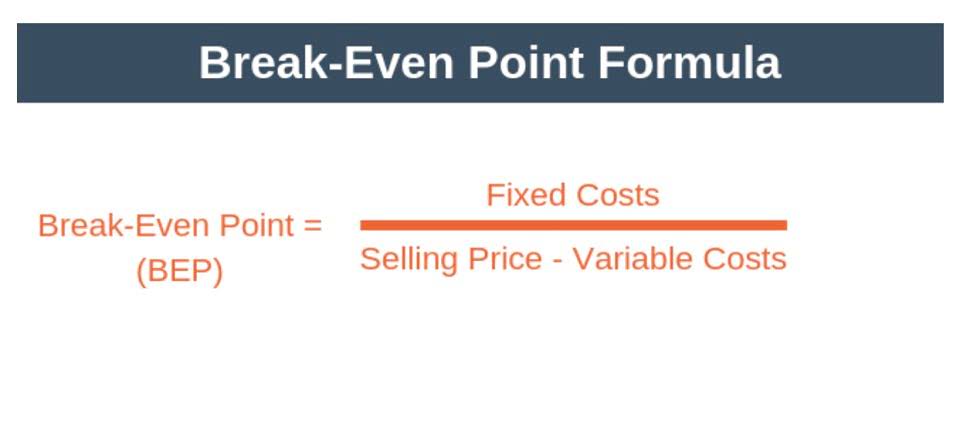
As a result of your increased knowledge base making you more qualified for your job, clients are willing to pay more money for your services. CPAs, on the other hand, require a bachelor’s degree and a state’s board certification, usually after passing the comprehensive four-part CPA exam. CPAs are more than just tax professionals; they also serve as enrolled agent salary financial advisors and business consultants. They are well-versed in financial accounting and reporting, can conduct audits, offer business environment and concepts advice, and even specialize in personal finance management. As of October 2021, the Bureau of Labor Statistics (BLS) recorded the national median salary for CPAs in the U.S. as $73,560.
Highest paying industries for enrolled agents
If you’re looking to speed up your salary gains in tax preparation, the best thing you can do is earn a professional designation, like the Enrolled Agent designation awarded by the IRS. Earning an EA confirms to clients the tax knowledge that you have, and keeps you up to date every year on any changes in taxation. Both certified public accountants (CPAs) and enrolled agents (EAs) must adhere to strict ethical standards. Among the differences between these two careers is that certified public accountants are regulated at the state level.
- These courses can span a broader range of topics, including financial accounting, auditing, ethics, and even specialized areas like forensic accounting or cybersecurity.
- Due to the fact that this type of work can be quite complex, the job of an EA is often in high demand.
- As such, the prospects for salary growth and increased demand for EAs remain promising.
- For this reason, an enrolled agent must also be well organized and capable of meeting reporting and filing deadlines.
- In most cases the confusion could be avoided if everyone was on the same page and had equal share of information.
- When the general public owes back taxes or has other tax problems, it is a Revenue Agent that will deal with these problems.
Seven Careers for Enrolled Agents
- They are typically adept in preparing tax returns and can represent taxpayers before the IRS.
- If you gain the correct certifications and experience necessary to market yourself as a reliable accountant, people will be willing to pay more for your services.
- Starting salaries for tax preparers are as low as $25,000 and increase to as much as $86,000 based on experience.
- The average Enrolled Agent Salary in The United States is $56,000 per year.
- It requires you to pass a 3-part exam with ongoing CPE credits required.
- Are you on the crossroads of choosing between becoming an Enrolled Agent (EA) and a Certified Public Accountant (CPA)?
On current job posts, the IRS states that many members of their leadership and executive teams began their career as an Internal Revenue Agent. Starting salaries for tax preparers are as low as $25,000 and increase to as much as $86,000 based on experience. Those with the EA credential can see an increase of as much as 30% based on experience, knowledge and other factors. Tax preparers with 3-5 years experience and an EA credential can find job postings with salaries ranging from $50,000 to $125,000 annually. Working for a tax law firm as an Enrolled Agent, you will be pulling, processing, saving, and sharing IRS account transcripts. You will get to know your clients during a time when they really need help.
Average Salary Range for Enrolled Agent

Also, people will not be as inclined to pay more for someone who is not an expert in their specific industry. You want to make sure you are good at that specific industry as well as enjoy it. https://www.bookstime.com/ People who do not like their job will not perform as well as those who do, so keep this in mind. Picking the right industry to specialize in can greatly impact the success of your career.

Enrolled Agents are also well-versed in tax-related issues like determining tax liability and providing tax advice. They are typically adept in preparing tax returns and can represent taxpayers before the IRS. By preparing individual or business taxes you’ll get real world experience helping tax clients with some of the more common problems they face. EAs are more than just expert tax preparers, you will manage client relationships, prepare and review corporate, individual, partnership, fiduciary and other tax returns.
Big cities have more job opportunities and a larger pool of skilled workers, but they also typically have a higher cost of living, so location isn’t everything. If you dislike the cold and aren’t comfortable in a big city, you don’t have to live in New York or Chicago to make a living as an Enrolled Agent. This in turn makes you a more popular choice compared to your peers when it comes to a potential client looking for a tax professional. Certified public accountants do generally have more job opportunities due to the fact that they can work for private individuals, in the private sector, or for the government. The Enrolled Agent Certification (EA) is a good consideration if you do not want to go through all the steps of acquiring a CPA but still want to be a tax expert. It is also good to be used with your CPA as well, though, to hone your tax knowledge better.

- As of October 2021, the Bureau of Labor Statistics (BLS) recorded the national median salary for CPAs in the U.S. as $73,560.
- EAs are federally authorized to represent taxpayers before the IRS and have unlimited representation rights.
- Enrolled Agents are also well-versed in tax-related issues like determining tax liability and providing tax advice.
- Plus, the EA designation signals a high level of expertise that will cement your status as a valuable expert on tax topics.
- CPAs, however, offer a broader range of tax services, combining their accounting practices to provide comprehensive financial planning alongside tax preparation.
- This is because the income potential for enrolled agents tends to taper out over time.
- In addition, the average enrolled agent salary at companies like Smoker Craft Boats and Independent Health are highly competitive.
Becoming an EA is one of the best investments you can make in your career as a tax preparer. The benefits you’ll gain from earning the EA designation will far outweigh the cost of taking the EA exam. In addition to the salary benefits, you’ll also enjoy increased representation rights so you can expand your client base and the services you can offer. Plus, the EA designation signals a high level of expertise that will cement your status as a valuable expert on tax topics. EAs are federally-licensed tax professionals who are specifically licensed by the IRS to represent taxpayers before the federal government. The role of an Enrolled Agent primarily revolves around tax matters like tax returns, tax planning, and representing taxpayers in IRS office reviews or audits.
- It is for this reason many CFPs and advisors earn their EA credential.
- Because the EA credential is focused on tax issues, there is no requirement for a college degree or other educational qualifications beyond passing this exam.
- You can work from home, but you appear more professional if you rent an office space.
- There are many career tracks to consider as you apply to work for the IRS but one of the best places to start is as an IRS Internal Revenue Agent.
- This stipulation adds an element of time-sensitive pressure, making it a marathon where both endurance and expertise are tested.
Gain relevant experience
As an EA your day can consist of relationship building to grow various areas of the business through direct selling, client follow up and client retention. Interpersonal skills are important and successful tax preparation companies often upsell additional products and services such as audit defense, offering peace of mind for your tax clients. As you learn and grow in your career, you may find yourself mentoring future junior level tax professionals as well. Working in an accounting department you would regularly communicate with employees, vendors, and customers to ensure accuracy of financial transactions and records.


